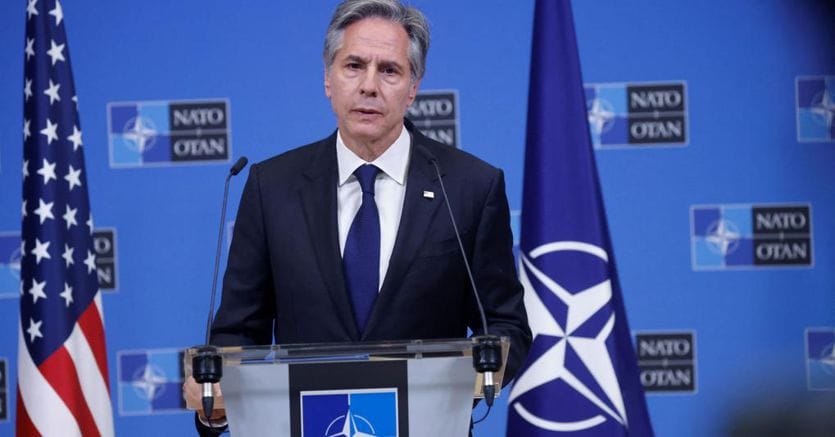Listen to the audio version of the article
With a short ceremony with an evident anti-Russian flavour, the NATO countries celebrated, on Thursday 4 April, the 75th anniversary of the military organisation, born after the Second World War, at the dawn of the Cold War. In the eyes of many, the Atlantic alliance has once again become a pillar of security in Europe, in the wake of Russia’s invasion of Ukraine. Its expansion to the East remains a source of questions.
In a speech at the Brussels headquarters of the military organisation, Secretary General Jens Stoltenberg explained that “NATO is stronger and more united than ever”. He called it “the most successful alliance in history”, capable of “spreading peace, democracy and prosperity across Europe”. The treaty of just 14 articles was signed in Washington on April 4, 1949, a year after the launch of the Marshall Plan.
At the time there were 12 members, today they have risen to 32.
The signing took place in an auditorium in the American capital, not far from the White House. The signatory countries were the United States, Canada, France, the United Kingdom, Italy, Belgium, the Netherlands, Denmark, Portugal, Norway, Iceland and Luxembourg. “For the first time, the Americans entered into an alliance in peacetime,” notes the former editor of Le Monde, André Fontaine, in his La tache rouge, published in France in 2004 (and in Italy the following year with the title The Cold War, Edizioni Piemme).
The alliance’s goal was to counter the nascent Soviet empire in Eastern Europe. Incredibly, 75 years later, the topic is back in the news. Two countries, Finland and Sweden, have just joined NATO, in the wake of Russia’s war in Ukraine. In today’s ceremony, space was given to the new member countries, those that had belonged to the Warsaw Pact for decades, until the Berlin Wall fell in 1989.
